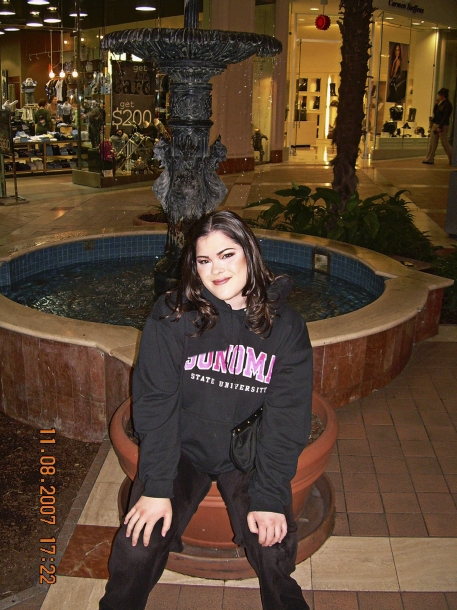
Simone, 18, always felt different, but she could never understand why. Then she uncovered a life-changing secret that turned her world upside down.
As told to: Kierna Mayo
Until I was 13, I assumed I was just like everyone else. But one day I read a piece of paper in my dad’s briefcase that changed everything. That’s when I saw the words that pierced me like a bullet: “Simone is said to have Asperger syndrome.” My mind started doing back flips. I screamed at my dad, “tell me what the heck Asperger’s is!” He told me, in the simplest terms he thought I’d understand, that I have a mild form of autism (a brain disorder). My father said that I was born with it and will always have it. He explained it was a problem that shapes the way I interact with other people, like a malfunction in which my brain sends me the wrong messages about how to react. I wasn’t sure exactly what he meant, but it didn’t matter: I just wanted to try to ignore my shock and go back to the way things were before I knew.
COMING TO TERMS
But even though I wouldn’t consciously acknowledge the news, it triggered a horrible depression in me; beneath my denial, Asperger’s shattered my confidence and made me feel lonely and isolated. I felt like an like an outcast—and not just because Asperger’s made it hard for me to make friends, but because now I had this label; I just wanted to be like everyone else. Finally, at 16, I said to myself, enough! You can’t run and hide from it, girl. It was like I’d been mutilating myself on the inside by pushing down my feelings. Still, I didn’t realize the extent to which Asperger’s had shaped my personality until I connected the dots from my childhood.

THE WARNING SIGNS
As a toddler, I could sing The Little Mermaid word for word but couldn’t say, “I’m hungry.” When my dad would ask something like, “how was school?” I would look at the floor and say something unrelated, like, “I want a popsicle.” I wasn’t avoiding the question—I thought that was the answer! With Asperger’s, you have no control over the way you react to people—sometimes you might flap your arms when you’re excited (I used to), and looking people in the eye is a major challenge. It feels as though I can’t do it, even if I try.
SOMETHING SPECIAL
It’s funny: the first time I thought something was off about me wasn’t because of what I couldn’t do—it was because of what I could do. In the sixth grade, while other kids were struggling with spelling, I was like a human spell-check! I’ve also always had a photographic memory, and what I call my “superpowers”—extrasensory hearing and acute awareness: I can make out phone numbers people are dialing just by the sound they make when pressed, or hear even one sour note in an entire symphony! And I can fully pay attention to two things at once—like doing homework while listening to a conversation between two other people.
Don’t get me wrong. Asperger’s can be very confusing. For years I felt like a butterfly trapped in its cocoon, waiting to emerge; it took years of work with a speech therapist and psychologists to get over the hurdle of making friends. But it’s been worth it: my two best friends and I can talk about anything, from boys and clothes to deep stuff, like politics and religion. Now I’m focused on getting into college—and living on campus, away from home for the first time.
I’m not going to let Asperger’s create limitations for me. That’s why I’m happy to have found out about—and confronted—my disability. Asperger’s is a metaphor for life: We all have challenges, but the key is to be able to face what’s bad about them and still find what’s good.
Could You Have a Hidden Disorder?
Asperger syndrome isn’t the only developmental disorder that can go undiagnosed. Call your doctor if these symptoms sound familiar:
17 Source: National Institute of Mental Health, nimh.nih.gov